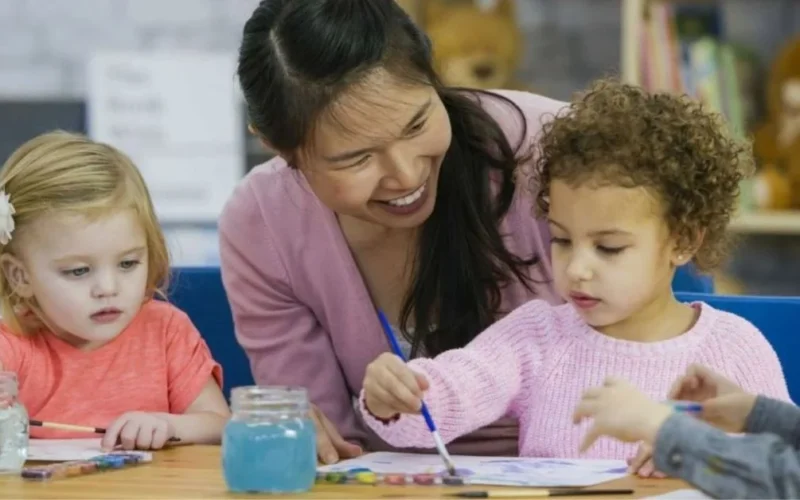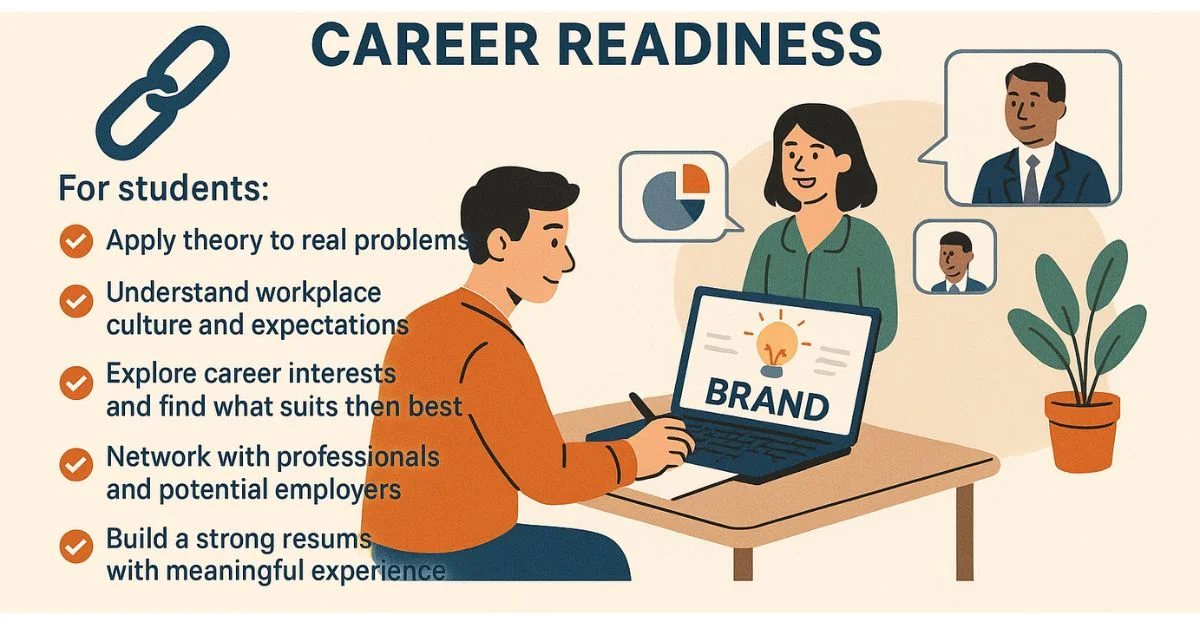Table of Contents
- What Is an Early Childhood Education Assistant?
- Why This Role Matters So Much?
- Day-to-Day Responsibilities
- Essential Skills for Success
- Education and Training: What Do You Need?
- Where can you work?
- Career Growth and Opportunities
- Pros and Cons of Being an Early Childhood Education Assistant
- How to Stand Out in the Field?
- Tips for New Early Childhood Education Assistants
- The Future of Early Childhood Education Assistants
- Conclusion
If you’ve ever watched a child discover something new, a color, a word, or even how to tie a shoe, you know it’s a magical moment. For early childhood education assistants, creating those moments is part of the job. It’s a career that blends patience, creativity, and a whole lot of heart.
What Is an Early Childhood Education Assistant?
An early childhood education assistant, sometimes called a preschool assistant or childcare aide, supports certified educators in early learning environments. These professionals work with children from infancy to around age 5, helping nurture their emotional, cognitive, and social development.
They’re the behind-the-scenes heroes in preschools, daycare centers and early learning programs, helping manage classroom routines, assisting with lesson plans, and creating a safe, fun space for learning.
Why This Role Matters So Much?
Children’s brains develop faster during the early years than at any other stage in life. These foundational years set the tone for lifelong learning, behavior, and health. Early childhood education assistants play a critical role in shaping a child’s love for learning, helping them build social skills and supporting their overall growth.
Day-to-Day Responsibilities
Every day in an early learning classroom brings something new, but here are some common tasks early childhood education assistants handle:
1. Supporting Educators
- Help prepare learning materials and activities
- Assist with storytelling, songs, and group time
- Work one-on-one with children who need extra support
2. Keeping the Classroom Running
- Organize supplies and learning areas
- Help with meal times, diaper changes, and clean-up
- Ensure the environment is safe and clean
3. Engaging with Children

- Play-based learning and interaction
- Encourage positive behaviors and conflict resolution
- Observe developmental progress and report to the lead teacher
Essential Skills for Success
 Some essential skills should be part of this career:
Some essential skills should be part of this career:
- Patience: Kids test boundaries; it’s part of growing up. Remaining calm during tantrums or chaos is part of the job.
- Communication: You’ll be talking with kids, parents, and fellow educators. Clear, compassionate communication helps build trust.
- Creativity: From art projects to imaginative play, creativity keeps learning fun and engaging.
- Organization: Keeping track of schedules, supplies, and classroom routines is no small task.
- Teamwork: You’ll often be collaborating with other staff members. A team mindset ensures everything runs smoothly.
Education and Training: What Do You Need?
While requirements vary by region or country, many early childhood education assistant roles require:
- A high school diploma or equivalent
- A certificate or diploma in early childhood education (ECE), childcare, or a related field
- First aid and CPR certification
Where can you work?
Early childhood education assistants are in demand across a variety of settings, including:
- Preschools
- Daycare centers
- Head Start programs
- Montessori schools
- Home-based childcare centers
- Public or private early learning programs
Each environment offers a slightly different pace and philosophy. For example, Montessori emphasizes independence and hands-on learning, while play-based programs focus on social development through guided play.
Career Growth and Opportunities
Becoming an early childhood education assistant is a great entry point into the broader field of child development. Many assistants eventually pursue roles such as:
- Lead Preschool Teacher
- Additional Needs Assistant
- Childcare Center Director
- Early Intervention Specialist
By gaining experience and furthering your education, you can grow into roles with more responsibility and impact.
Pros and Cons of Being an Early Childhood Education Assistant
1. Pros
- Deeply rewarding, especially when you see children grow
- Lots of variety no two days are the same
- Opportunities for creativity and play
- High demand for qualified assistants
2. Cons
- Can be physically and emotionally tiring
- Not always high-paying (though this is improving in some areas)
- Requires constant attention and energy
- Occasional challenging behaviors from children or parents
How to Stand Out in the Field?
If you’re passionate about working with young children and want to excel, consider these tips:
- Get Certified: A certificate or diploma in early childhood education will boost your resume and job opportunities.
- Volunteer or Intern: Experience matters. Many employers value hands-on experience just as much as formal education.
- Stay Updated: Follow early education blogs, attend workshops, and explore new teaching techniques. The more current you are, the better you can support the classroom.
- Build a Portfolio: Document lesson plans, creative ideas, and activities you’ve helped with. It’s a great way to show potential employers what you bring to the table.
Tips for New Early Childhood Education Assistants
Starting? Here’s some friendly advice to ease your transition:
- Ask Questions: Don’t be shy. Your team is there to support you.
- Observe and Learn: Watch how experienced teachers manage different situations.
- Be Flexible: Children can be unpredictable. Go with the flow when plans change.
- Celebrate Small Wins: Whether it’s helping a child write their name or manage a tantrum, every victory counts.
- Take Care of Yourself: Self-care is crucial. You can’t pour from an empty cup.
The Future of Early Childhood Education Assistants
The demand for early childhood educators, including assistants, is expected to grow as more parents seek high-quality care and education for their young children. Governments and communities are recognizing the importance of early learning, which means more opportunities, better pay, and professional recognition may be on the horizon.
Technology is also slowly making its way into classrooms, from digital learning tools to apps that help track developmental milestones. It can be said that staying tech-savvy can give you an edge.
Conclusion
Becoming an early childhood education assistant isn’t just a job; it’s a meaningful journey where every day brings the chance to make a real difference in a child’s life. You’re not only supporting early learning; you’re helping build the emotional, social, and cognitive foundation for the next generation. Whether you’re singing songs during circle time, helping with finger painting, or offering a comforting hug after a tough moment, your role is essential, powerful, and deeply rewarding. The laughter, growth, and “aha” moments you’ll witness are priceless.








